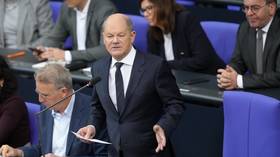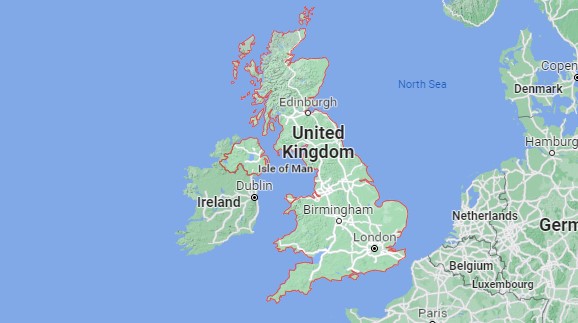US State Department orders families of Embassy personnel in Ukraine
to begin leaving as soon as Monday
By DAILY MAIL REPORTER and GINA MARTINEZ FOR DAILYMAIL.COM
PUBLISHED: 14:44 EST, 22 January 2022
The U.S. State Department has ordered families of U.S. Embassy personnel living in Ukraine to start evacuating as soon as Monday, according to officials.
The department is also expected to tell Americans in the country next week to leave via commercial flights 'while those are still available,' an official told DailyMail.com on Saturday.
The order comes after U.S. Secretary of State Antony Blinken and Russian Foreign Minister Sergei Lavrov met in Geneva on Friday for crunch talks over the Ukraine crisis.
Obviously, they worked really well.
Ukrainian President Volodymyr Zelensky has predicted a 'large-scale' war with Russia if the superpower attempts to occupy the industrial city of Kharkiv - which he believes is a target due to its large Russian-speaking population.
Blinken said there were 'no breakthroughs' in the talks with the United States' former Cold War rival in a bid to prevent an imminent war with Ukraine.
Kharkiv, in Eastern Ukraine, is the former Soviet republic's second biggest city with a population of about 1.4 million, and Zelensky believes it is a 'feasible' target for Vladimir Putin.
After meeting with President Zelensky, Blinken warned that Russia could attack Ukraine on 'very short notice' during remarks at the American embassy in Kyiv on Wednesday.
Blinken's insistence on a 'severe' response came a day after President Joe Biden drew widespread criticism for saying retaliation would depend on the details - and that a 'minor incursion' could prompt discord among Western allies.
Blinken met with President Zelensky earlier this week as the Biden administration said it would provide an additional $200 million in defensive military aid to the country amid growing fears of a Russian invasion.
Blinken told embassy staff in Kyiv: 'We know that there are plans in place to increase that (Russian) force even more on very short notice.'
'That gives President Putin the capacity, also on very short notice, to take further aggressive action against Ukraine,' Blinken said.
He also maintained that a peaceful, diplomatic solution was still the priority, but stressed the situation was entirely reactive to Russian President Vladimir Putin's actions.
'I strongly, strongly hope that we can keep this on a diplomatic and peaceful path, but ultimately, that's going to be President Putin's decision,' Blinken said.
On top of the military forces sent to Ukraine by Britain, the Biden administration today said it is providing an additional $200 million in defensive military aid to the country, with the US having previously supplied small arms, ammunition, secure radios, medical equipment, spare parts and other equipment. Biden has also previously ruled out sending US forces into Ukraine, but special forces already operate under rotation there to train Ukrainian soldiers
Russian military vehicles arriving in Belarus are seen in this photograph distributed by the Belarus Ministry of Defense on Tuesday, ahead of joint exercises
On Thursday, Biden cautioned that any Russian troop movements across Ukraine's border would constitute an invasion and that Moscow would 'pay a heavy price' for such an action.
'I've been absolutely clear with President Putin,' Biden said. 'He has no misunderstanding: Any, any assembled Russian units move across the Ukrainian border, that is an invasion.'
Asked whether Russia was intimidated by Ukraine, Lavrov said on arriving for the talks on a cold and blustery day in Geneva: 'We're not afraid of anyone, even not of the U.S.'
In Moscow, the Kremlin reacted coolly to a parliament initiative to recognise two pro-Russian breakaway regions in eastern Ukraine as independent states, saying it was important to avoid steps that could increase tensions.
Kremlin spokesperson Dmitry Peskov said it was important not to try and score political points in such a fragile situation.
Scholz and British Prime Minister Boris Johnson shared a phone call on Thursday evening, putting out a statement today that warned Russia would pay a 'considerable and serious price' if it invades Ukraine.
Moscow has for weeks been massing tens of thousands of troops, tanks and artillery pieces along its eastern flank, sparking fears of an invasion, though the Kremlin has insisted it is merely a defence force (pictured, Russian forces currently massed in border regions)
The two leaders agreed that 'further military aggression by Russia against Ukraine must be averted' and there would be consequences if the situation were to escalate, the German chancellery said.
Even while rejecting the core Russian demands, the Biden administration has said it is willing to speak to Moscow about its security concerns.
One proposal by the United States is to revive restrictions on missiles in Europe that had been set by the Intermediate-Range Nuclear Forces Treaty, a Cold War deal trashed by former President Donald Trump's administration as it accused Moscow of violations.
The Biden administration has also offered more transparency on military exercises. Russia has not rejected the proposals but says that its core concern is Ukraine.
U.K. Foreign Secretary Liz Truss, speaking in Australia amid talks on the new AUKUS submarine pact, today warned Putin to 'desist and step back' from Ukraine before making 'a massive strategic mistake'.
'Invasion will only lead to a terrible quagmire and loss of life, as we know from the Soviet-Afghan war and conflict in Chechnya,' she said.
'We need everyone to step up. Together with our allies, we will continue to stand with and urge Russia to de-escalate and engage in meaningful discussions. What happens in eastern Europe matters for the world.'
Moscow insists it has no plans to invade but has at the same time laid down a series of demands - including a ban on Ukraine joining NATO - in exchange for de-escalation.
Washington has rejected Moscow's demands as 'non-starters' and NATO Chief Jens Stoltenberg this week insisted that the alliance 'will not compromise on core principles such as the right for each nation to choose its own path.'
Upping the ante, Russia announced new naval drills that will see it deploy to the Atlantic, Pacific, Arctic and Mediterranean 'more than 140 warships and support vessels, more than 60 aircraft, 1,000 pieces of military equipment, and about 10,000 servicemen.'
The announcement followed an angry condemnation from the Kremlin of what it described as 'destabilizing' remarks from Biden, after the American leader vowed a 'severe' response to any invasion of Ukraine.
Russia already held joint military drills Wednesday with forces of ex-Soviet republic Belarus, which also neighbors Ukraine.
A U.S. official said the exercises could presage a permanent Russian military presence involving both conventional and nuclear forces in Belarus.
The West has repeatedly warned Russia it would pay a 'high price' of economic and political sanctions should it invade Ukraine.
========================================================================================
German chancellor snubs Biden – Der Spiegel
Olaf Scholz turned down the US president’s call for talks due to a busy schedule,
German media claims
German Chancellor Olaf Scholz has reportedly turned down an invitation for talks sent by US President Joe Biden at short notice. According to Der Spiegel, Scholz cited a busy schedule as the reason why he could not discuss the situation around Ukraine with his counterpart in Washington.
The German leader had arranged an official visit to Spain by the time the invitation from the White House reached him, the outlet said on Friday. Furthermore, Scholz is allegedly eager to spend more time in Germany as the country grapples with the Omicron Covid-19 variant. The two sides are now reportedly working to arrange a bilateral meeting before mid-February.
German journalists claim to have discovered that the canceled meeting was meant to bring the two countries’ positions closer together vis-a-vis Russia. Biden had reportedly hoped to convince Scholz to adopt a tougher line on Moscow. To prepare the ground for that, CIA head William Burns reportedly paid the German chancellor a visit in Berlin last week.
Of course, 'closer together' means Germany would fall in line with USA, not the other way about. I'm proud of Scholz for not caving to every US demand.
Both the German government and the White House have officially denied the claims made by Der Spiegel.
When asked to comment on the report, a spokesperson for the White House National Security Council branded it as “completely made up,” adding that nothing of the kind “happened.” The official went on to say that the initiative to hold talks actually came from Berlin, and that Washington is expected to welcome Scholz in February.
Speaking on Tuesday, following talks with NATO Secretary General Jens Stoltenberg, Scholz made it clear that Germany would not export lethal weapons to Ukraine. He stressed that “on that point, nothing has changed” since his government took over in December.
Earlier in the week, UK Defence Secretary Ben Wallace told MPs that Britain had “taken the decision to supply Ukraine with light anti-armor defensive weapon systems.” A small group of British military personnel would also be sent to the Eastern European country to provide training. The delivery flights reportedly bypassed German airspace, however.
=========================================================================================
Ukraine must do one big thing before it can be allowed into NATO
– bloc member
Hungary’s top diplomat said that Kiev needs to look after its minority populations
NATO-Russia Council at the Alliance's headquarters in Brussels, Belgium on January 12, 2022. © Getty Images / NATO
Hungary’s foreign minister has offered the Ukrainian government advice on joining NATO, saying that it needs to better respect the rights of minority populations if it wants to eventually be let into the military bloc.
In an interview published by TASS on Thursday, Peter Szijjarto said that Kiev still has plenty of issues to resolve before it could be inducted into NATO. “The Ukrainians need to make many serious changes, if they are seriously thinking about Euro Atlantic integration,” he explained. “I can speak concretely about one area: respecting the rights of national minorities. Because right now Ukraine has plenty of problems there.”
He clarified that Budapest is not satisfied with how ethnic minorities are being treated in Ukraine. “Their right to education in their native language and its use in administration, culture, and religion is being violated. The law prohibiting people with dual-citizenship from serving in public office is antidemocratic. We understand the challenges Ukraine is dealing with, its fight for sovereignty and territorial integrity, but we will never accept this approach to national minorities.”
A census taken in 2001 showed that about 77.8% of Ukraine’s population was ethnic Ukrainians. The largest minority groups were Russians (17.3%), Belarusians (0.6%), Moldovans (0.5%), Crimean Tatars (0.5%), and Bulgarians (0.4%). Another census was meant to be taken in 2010, but it was postponed until 2020, and then postponed again. In 2020, an official stated that it would not happen in 2021 either, saying that a census is “an expensive pleasure.”
Szijjarto has previously criticized Kiev for violating the rights of Hungarian minorities in Ukraine, pointing to a 2017 law that banned the use of foreign tongues in educational institutions. The government has also come under fire for a law drafted last year that would deny official minority status to any group considered to have a state elsewhere, including Hungarians and Russians.
Many Ukrainian laws are aimed at reducing the use of the Russian language and Russian media in Ukraine. Other minorities probably get caught up in these efforts.
There are many other areas where Ukraine needs to improve, such as its open tolerance for neo-Nazis, its habit of imprisoning opposition leaders, and its extraordinary levels of corruption. I fear that many NATO nations are willing to overlook these evils for the sake of kicking sand in Russian eyes.
==========================================================================================


















